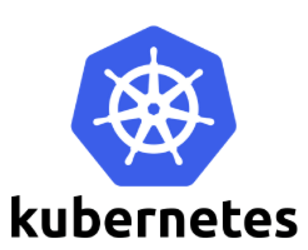How To Install Kubernetes on AlmaLinux 9

In this tutorial, we will show you how to install Kubernetes on AlmaLinux 9. In the realm of modern container orchestration, Kubernetes has emerged as the gold standard for managing containerized applications at scale. AlmaLinux 9, a robust and dependable Linux distribution, serves as an excellent foundation for hosting Kubernetes clusters.
This article assumes you have at least basic knowledge of Linux, know how to use the shell, and most importantly, you host your site on your own VPS. The installation is quite simple and assumes you are running in the root account, if not you may need to add ‘sudo‘ to the commands to get root privileges. I will show you the step-by-step installation of Kubernetes on AlmaLinux 9. You can follow the same instructions for CentOS and Rocky Linux or RHEL-based.
Prerequisites
- A server running one of the following operating systems: AlmaLinux 9.
- It’s recommended that you use a fresh OS install to prevent any potential issues.
- SSH access to the server (or just open Terminal if you’re on a desktop).
- An active internet connection. You’ll need an internet connection to download the necessary packages and dependencies for Kubernetes.
- A
non-root sudo useror access to theroot user. We recommend acting as anon-root sudo user, however, as you can harm your system if you’re not careful when acting as the root.
Install Kubernetes on AlmaLinux 9
Step 1. Before diving into the installation process, ensure your AlmaLinux 9 system is up-to-date. Run the following commands in your terminal:
sudo dnf update
Step 2. Installing Kubernetes on AlmaLinux 9.
- Method 1: Installing Kubernetes on AlmaLinux 9 using Package Managers
One of the easiest ways to install Kubernetes on AlmaLinux 9 is by using package managers like yum or dnf. Here are the steps to follow:
Update the system:
sudo dnf update
Add the Kubernetes repository:
sudo tee /etc/yum.repos.d/kubernetes.repo <<EOF [kubernetes] name=Kubernetes baseurl=https://packages.cloud.google.com/yum/repos/kubernetes-el7-x86_64 enabled=1 gpgcheck=1 repo_gpgcheck=1 gpgkey=https://packages.cloud.google.com/yum/doc/yum-key.gpg https://packages.cloud.google.com/yum/doc/rpm-package-key.gpg EOF
Install Kubernetes using the following command below:
sudo dnf install kubelet kubeadm kubectl
Next, enable and start the kubelet service:
sudo systemctl enable kubelet && sudo systemctl start kubelet
Initialize the Kubernetes cluster:
sudo kubeadm init
Set up the kubectl configuration:
mkdir -p $HOME/.kube sudo cp -i /etc/kubernetes/admin.conf $HOME/.kube/config sudo chown $(id -u):$(id -g) $HOME/.kube/config
Deploy the pod network add-on:
kubectl apply -f https://docs.projectcalico.org/manifests/calico.yaml
That’s it! You have successfully installed Kubernetes on AlmaLinux 9 using package managers.
- Method 2: Installing Kubernetes on AlmaLinux 9 from Source Code
Another way to install Kubernetes on AlmaLinux 9 is by building it from source code. Here are the steps to follow:
First, install the required dependencies:
sudo dnf install git make gcc
Clone the Kubernetes repository:
git clone https://github.com/kubernetes/kubernetes.git cd kubernetes
Build the Kubernetes binaries:
make
Install the Kubernetes binaries:
sudo make install
Initialize the Kubernetes cluster:
sudo kubeadm init
Set up the kubectl configuration:
mkdir -p $HOME/.kube sudo cp -i /etc/kubernetes/admin.conf $HOME/.kube/config sudo chown $(id -u):$(id -g) $HOME/.kube/config
Deploy the pod network add-on:
kubectl apply -f https://docs.projectcalico.org/manifests/calico.yaml
That’s it! You have successfully installed Kubernetes on AlmaLinux 9 from source code.
Congratulations! You have successfully installed Kubernetes. Thanks for using this tutorial for installing Kubernetes on your AlmaLinux 9 system. For additional help or useful information, we recommend you check the official Kubernetes website.